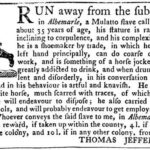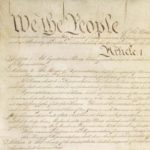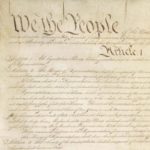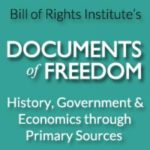The state of the economy during the presidential election season has a significant impact on not just the approval rating of the incumbent president at the time, but also has an impact on the policies in which presidential candidates run on. Additionally, the state of the economy also influences who will come out to vote in that year. This year, 2020, it is just one of many factors that may affect voter turnout but the economy may be underestimated. This exercise will encourage students to evaluate how other fluctuations in the economy may affect the ratings, policies, and decisions of the 2020 presidential candidates.
Pathways to Environmental Justice
In this one-hour virtual field trip hosted and led by Edward M. Kennedy Institute education staff, students in grades 4 through 8 learn about the challenges posed by climate change and the need to transition to a more sustainable and resilient economy. They will work together as Senators to build a bill that provides assistance and environmental justice for three distinct groups of people affected by climate change: frontline and vulnerable communities, fossil fuel workers, and young people. Register here.
Civics in Real Life
Civics in Real Life is a simple-to-use resource that ties in to what’s going on today. On this page, updated regularly through the school year, you will find concise resources that explore a civics concept or idea connected to current events. Simply click on the resource to download the PDF and share with your students!
Hamilton: An American Musical Resources

Alexander Hamilton, Founding Father and Broadway star, clashed with Thomas Jefferson politically and morally. But both figures were essential to the founding of the United States of America. Check out this page for resources on Jefferson, Hamilton, and other main players from the Broadway musical “Hamilton: An American Musical.”
Thomas Jefferson and Slavery

Thomas Jefferson, the man who wrote the famous line “all men are created equal,” was a life-long slave-owner. Over the course of his life, he would own 600 human beings, and at any given time there would be roughly 100 slaves living and working on and around Jefferson’s plantation and farms. This handout describes Thomas Jefferson’s views on slavery.
Constitution of the United States

The original U.S. Constitution is on permanent display at the National Archives in Washington, DC. Drafted in 1787 after a hard-won victory in the War for Independence, this document codified the spirit of the Revolution into an ingenious practical scheme of government to promote the welfare of all its citizens.
Teaching Six Big Ideas in the Constitution

This lesson engages students in a study of the Constitution to learn the significance of “Six Big Ideas” contained in it. Students analyze the text of the Constitution in a variety of ways, examine primary sources to identify their relationship to its central ideas, and debate the core constitutional principles as they relate to today’s political issues. (Duration: 45-minute segments, up to 4.5 hours.)
Documents of Freedom: History, Government, and Economics Through Primary Sources

This complete online textbook covers American history, government, and economic concepts. Resources include readings for students, activity directions for teachers, and handouts that are downloadable and printable for classroom use. Content is geared toward students in grades 8-12. All materials are aligned with Common Core and individual state standards.
Making Civics Real
A multimedia workshop for high school civics teachers. It includes 8, 1-hour video programs, a print guide to the workshop activities, and a website. The goal of this workshop is to give teachers new resources and ideas to reinvigorate civic education. The series presents authentic teachers in diverse school settings modeling a variety of teaching techniques and best practices in a variety of social studies courses from a 9th-grade government/civics/econ course, to a 12th-grade law course